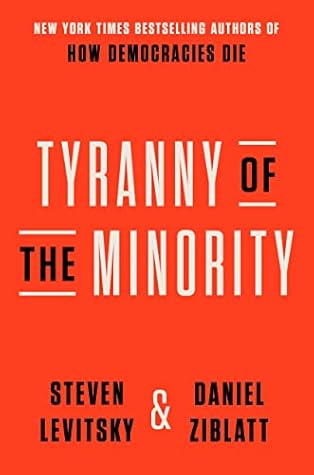Geographic sorting and gerrymandering have produced what one analyst has called “manufactured majorities.” Between 1968 and 2016, there were 121 instances in state legislatures in which the party that received fewer votes statewide nevertheless won a majority of seats in the state house, and there were 146 instances in which the losing party won control of state senates. Whereas in the past both parties occasionally benefited from manufactured majorities, today, thanks to the urban-rural divide, the Republicans are almost always the beneficiary.
Welcome back. Just a moment while we sign you in to your Goodreads account.


